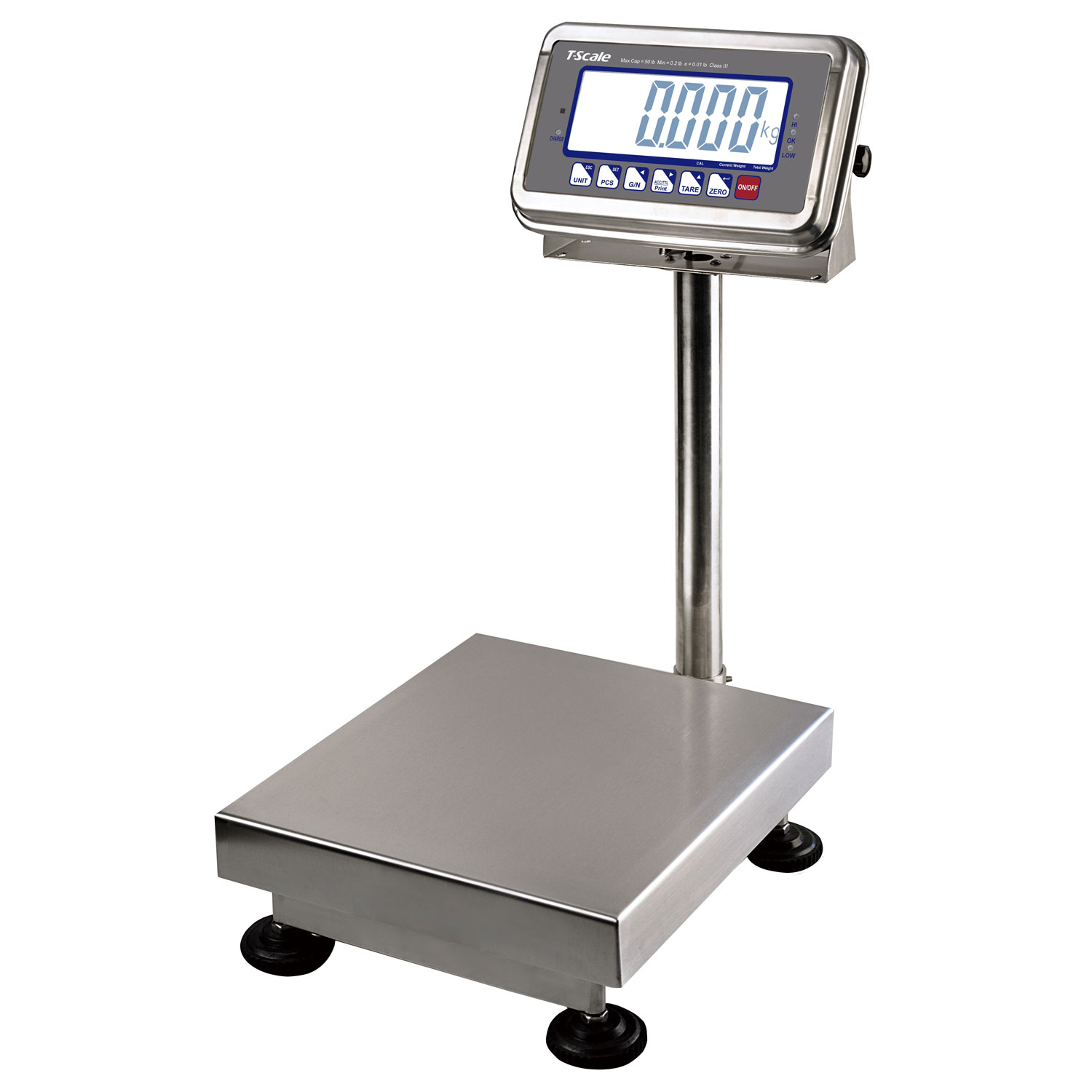Just How Industrial Scales Work: A Detailed Introduction for New Users
Comprehending the technicians behind industrial ranges is crucial for brand-new users who want to guarantee accuracy in their measurements. As we discover these components, one should think about just how these elements interact to boost efficiency in varied industrial applications.
Fundamentals of Industrial Scales
Industrial scales are essential tools used throughout various markets, including manufacturing, logistics, and agriculture, to guarantee exact weight measurements of hefty loads. The basic concept behind industrial ranges includes the conversion of weight into a quantifiable type that can be displayed electronically or analogically. These scales use different mechanisms, such as load cells or mechanical levers, to identify the weight of objects placed upon them.

Along with their dimension capabilities, commercial scales are created to stand up to rough environments, including robust construction that stands up to dust, dampness, and heavy impacts. Calibration and maintenance are crucial to make sure accuracy, as even small inconsistencies can cause significant financial effects. By understanding the basics of commercial scales, individuals can value their significance in numerous commercial applications.
Sorts Of Industrial Scales
Numerous sorts of industrial ranges provide to the varied requirements of various sectors, each created to handle specific weighing tasks with precision and reliability. Among the most common kinds are flooring scales, which are excellent for evaluating heavy and bulky products. These scales generally include big platforms and can accommodate palletized products, making them vital in warehouses and delivery facilities.
One more kind is bench scales, which are often used for smaller sized products in production and retail settings. They offer exact measurements for products that need precision, such as chemicals or parts in assembly lines (Industrial Scales). For mobile procedures, mobile scales use flexibility and simplicity of transport, suitable for fieldwork or short-lived installations
Furthermore, specialized scales like checkweighers are utilized in manufacturing lines to keep quality control by making sure that items satisfy weight specs. Each type of industrial range plays a crucial duty in improving operational performance and precision throughout numerous fields.
Just How Weighing Systems Work
Weighing mechanisms are essential elements that make it possible for exact measurement of mass across different industrial ranges. These devices utilize various concepts of physics and design to supply precise weight analyses, vital for stock monitoring, quality assurance, and compliance with regulatory requirements.
One usual sort of considering device is the lots cell, which operates on the principle of pressure gauges. When a tons is applied, the tons cell warps somewhat, generating an electric signal symmetrical to the weight. This signal is after that converted into a readable weight dimension by the scale's electronics.
An additional widely used device is the mechanical balance, which utilizes a system of bars and weights. Industrial Scales. This method counts on the principle of balance, where the weight of the object being measured is balanced against understood weights, permitting straight measurement
Additionally, pneumatically-driven and hydraulic scales utilize fluid dynamics concepts to measure weight. These systems utilize the pressure applied by a tons to identify weight, providing high accuracy for massive lots.
Proper Use Methods
When using commercial scales, sticking to correct use methods is important for making sure precise dimensions and preserving tools honesty. Most importantly, it is vital to select the suitable scale for your certain application, as scales vary in capacity and precision.
Before weighing, guarantee that the range is put on a secure, level surface area devoid of vibrations or disruptions. This will assist to lessen mistakes created by external factors. Furthermore, calibrate the scale according to the supplier's specs before use, ensuring that it useful link is operating correctly.
When positioning items on the scale, disperse the weight evenly to avoid tipping or harming the tools. Constantly allow the scale to maintain prior to tape-recording the weight, as fluctuations might occur during initial positioning. For bulk materials, make use of containers that are suitable for the range dimension to stop overloading.
In addition, stay clear of putting cold or overly warm products straight on the range, as temperature level variants can affect accuracy. Finally, keep the considering platform complimentary and clean of debris to avoid contamination and ensure reputable results. By adhering to these strategies, customers can maximize the performance and durability of their commercial scales.
Upkeep and Calibration Tips
Guaranteeing the durability and precision of industrial scales needs thorough maintenance and normal calibration. A precautionary maintenance schedule is essential; it ought to consist of regular inspections to identify damage, particularly on tons cells and other delicate components. Consistently cleaning the range's surface and ensuring the surrounding location is totally free from debris will help keep its stability and efficiency.
Calibration is similarly necessary and ought to be executed at regular periods or whenever the scale experiences substantial changes in temperature level, moisture, or physical variation. Make use of qualified calibration weights that are traceable to national standards for accuracy. Paper each calibration session carefully to track efficiency with time and identify any kind of patterns or persisting issues.
Train all operators on appropriate scale use and upkeep protocols to ensure regular efficiency and precision. By sticking to these upkeep and calibration tips, users can boost the integrity of their industrial scales, making sure ideal operation in any type of setup.
Verdict

Recognizing the auto mechanics behind commercial ranges is crucial for brand-new customers that desire to ensure accuracy in their measurements.Industrial ranges are necessary devices utilized throughout various industries, including production, logistics, and agriculture, to make certain exact weight dimensions of hefty tons. The essential principle behind industrial ranges entails the conversion of weight into a measurable kind that can be displayed digitally or analogically. By understanding the basics of industrial scales, users can value their relevance in numerous commercial applications.
In verdict, recognizing the operation and maintenance of commercial scales is essential for guaranteeing precise weight dimensions in different applications. (Industrial Scales)